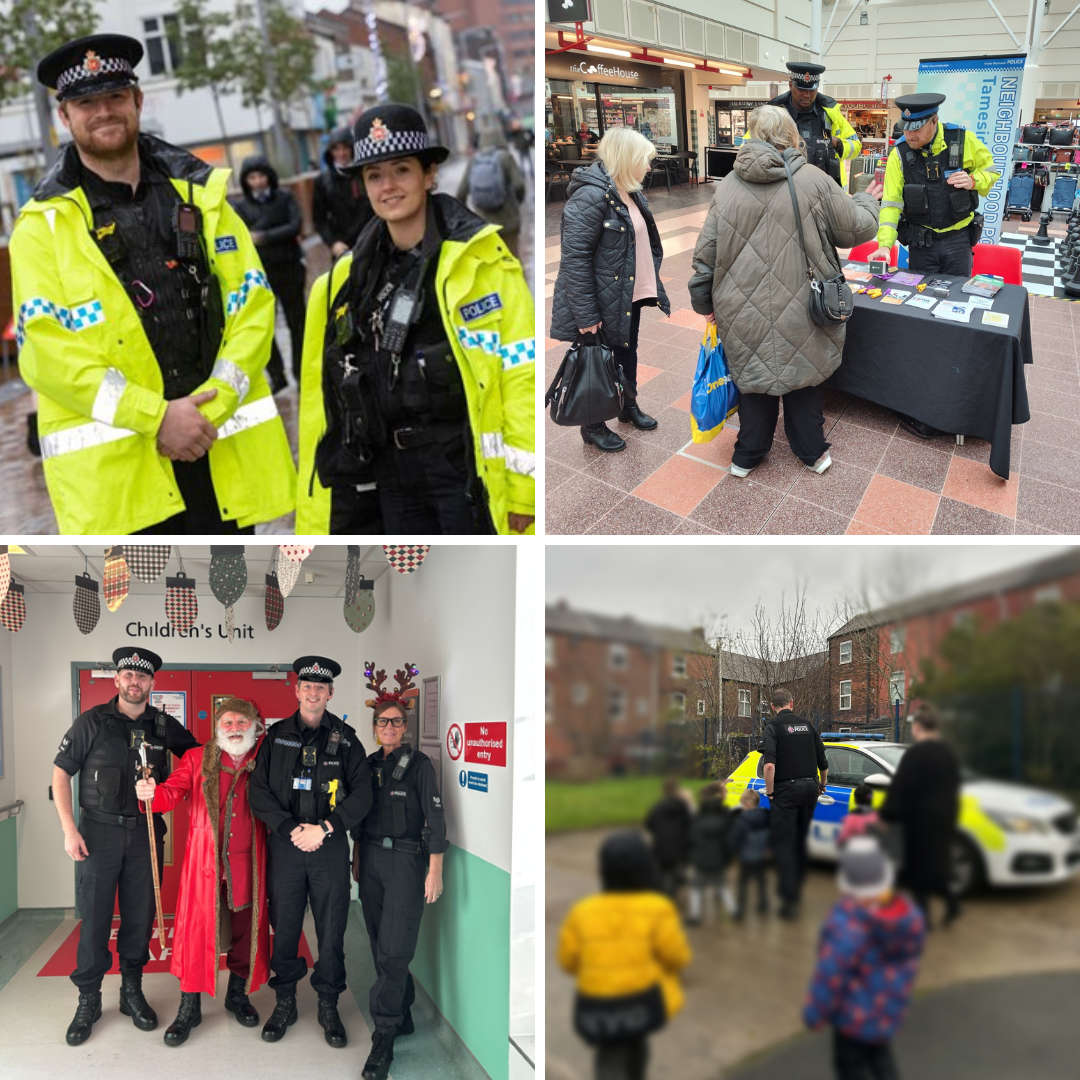
Rachel Medcalf and Sean Bostock are two local magistrates (civilian officers that volunteer to administer the law) that have sat on many trials across Tameside and Greater Manchester.
Both Rachel and Sean were previously in roles outside of law before starting as magistrates, and they both explained how they made the transition into becoming magistrates.
Rachel told us that she previously ran a business but wanted to pursue something more. “I ran a medical research consultancy business but as time went on I needed something else, and I thought that being a magistrate would be a good and interesting challenge. Over time there I realised how much work you can do with the community working there, and I wanted to make things as clear, understandable and as fair as possible for people.”
Sean entered the role in a much different way, after hearing about it from a young age. “My old manager was one and I’d always ask him what he was doing. He explained he was a justice for the peace, which is the old word for magistrate.” Sean was 18 at that time, but the idea stayed with him all through his working life. Then one day when he had more time on his hands, he decided to give it a go, and since then has been a magistrate.
Rachel progressed to explain how a day in court looks for her. “You get there at 9:30 and court starts on time at 10. The prosecution and defence has to be ready for them as well. Before going into court, you go to the assembly room and you find out what courtroom you are in. Then you go to a side room and the legal adviser will come out, bring you notes and go through the people on trial today. If you have any knowledge of the person on trial, you have to address this as you would not be able to sit on the trial, then we go into court and the prosecutor will address us and we will hear all the facts for the first time.”
The role is a challenging one but one that both Rachel and Sean are grateful they got into. The importance of their decisions is not something either of them take lightly, as they both expressed how they feel about the responsibility the role holds. “I try to put myself in the eyes of my neighbours,” Sean told us, “What would they think about this person in front of me? I try to put myself in my communities’ shoes as for what should happen to the person. We all have a gut feeling, so we try to take the action that would be best for the community whilst sticking to the rules.”
Rachel mirrors these feelings and reiterates the point that every case is unique and requires a fresh perspective. “Sometimes the decisions you make can make a difference to people’s lives, sometimes you are trying to help society move on and some people are beyond help so it’s more about their punishment. Particularly in the youth court it is more about getting people to think about the choices they make and their decisions, putting in work to prevent further offending and further crime.”
Data from gov.uk tells us that whilst youth offences and arrests in the UK had been going on a downward slope, between 2021 and 2022 the figure had rose again by 7%. This U – turn on previous figures is all the more reason why magistrates and judges are crucial to help youth offenders get back on the right track, as Rachel said. “You can look at someone from a background that hasn’t had a good upbringing and hasn’t made good choices, and you can get them to reset. That is a great feeling. I am not saying it happens all the time and it isn’t all sweetness and roses but when you can do it it is really rewarding, and you feel the criminal justice system has intervened to help someone turn a corner when they haven’t had the direction in life.”
Giving second chances or bringing people to justice is a big responsibility, but both Rachel and Sean take the responsibility in their stride and are proud of their work. Many others may be curious about becoming a magistrate, and both Rachel and Sean were keen to share helpful information for potential future magistrates.
“You don’t need any qualifications, just a full understanding of the local community and no criminal record.” Sean said. “You need to be as unbiased and as levelheaded as possible. It’s all about listening. Listening, understanding, and making a decision on that.”
Rachel added to this, saying “it’s about having the ability to work well as a team and analyze, process, and understand. You must be able to communicate well and have authority and presence. We get a lot of training that is ongoing about the law and guidelines, and we get assessed and appraised on a regular basis on how we do things in court. There is certainly a standard that is quite high.”
If you are interested in becoming a magistrate or know someone who is, head to https://www.gov.uk/become-magistrate/can-you-be-a-magistrate to find out more information.


 Character Curry Plans hot up !
Character Curry Plans hot up !
 Tesco Hattersley celebrates a year of community giving
Tesco Hattersley celebrates a year of community giving
 Tameside officers deliver results across the borough
Tameside officers deliver results across the borough
 Audenshaw man charged with multiple rape and sexual assault offences
Audenshaw man charged with multiple rape and sexual assault offences



